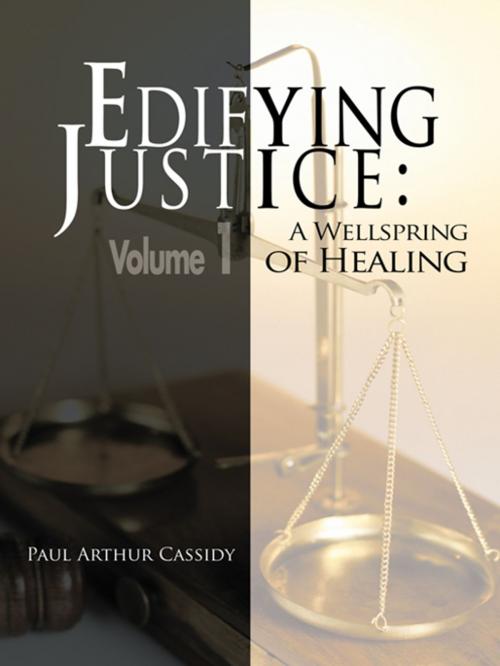| Author: | Paul Arthur Cassidy | ISBN: | 9781467872966 |
| Publisher: | AuthorHouse | Publication: | December 6, 2011 |
| Imprint: | AuthorHouse | Language: | English |
| Author: | Paul Arthur Cassidy |
| ISBN: | 9781467872966 |
| Publisher: | AuthorHouse |
| Publication: | December 6, 2011 |
| Imprint: | AuthorHouse |
| Language: | English |
As the first volume of a multi-volume set, this short collection of essays, entitled Edifying Justice: A Wellspring of Healing, describes the changes by which the Criminal Judicial System might serve the whole scope of justice effectively. With the Criminal Judicial System as its object of change, this collection of essays explores the logic and historical precedents behind the idea of complementing the Criminal Judicial System with a counter-balancing judicial arm. It explains why the current judicial arm, though suitable to the task of investigating crime and dispensing punishment, is hardly suitable to the task of investigating civilness and dispensing reward nor to the task of adjudicating a certain category of offenses. While intended for a general audience, this collection of essays figuratively places readers in the role of jurists and legislators who are tasked to transform the abstract concept of a balanced, two-armed Criminal Judicial System into concrete action. Given how distant is the completion of that epic task, the essays more immediate aim is to persuade readers to value the full scope of justice and to prize the fairer half.
As the first volume of a multi-volume set, this short collection of essays, entitled Edifying Justice: A Wellspring of Healing, describes the changes by which the Criminal Judicial System might serve the whole scope of justice effectively. With the Criminal Judicial System as its object of change, this collection of essays explores the logic and historical precedents behind the idea of complementing the Criminal Judicial System with a counter-balancing judicial arm. It explains why the current judicial arm, though suitable to the task of investigating crime and dispensing punishment, is hardly suitable to the task of investigating civilness and dispensing reward nor to the task of adjudicating a certain category of offenses. While intended for a general audience, this collection of essays figuratively places readers in the role of jurists and legislators who are tasked to transform the abstract concept of a balanced, two-armed Criminal Judicial System into concrete action. Given how distant is the completion of that epic task, the essays more immediate aim is to persuade readers to value the full scope of justice and to prize the fairer half.















